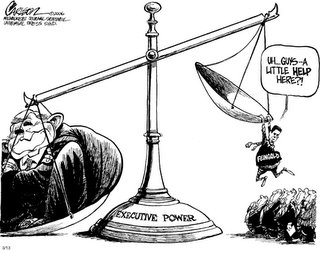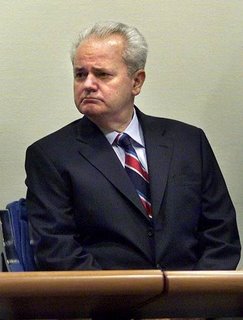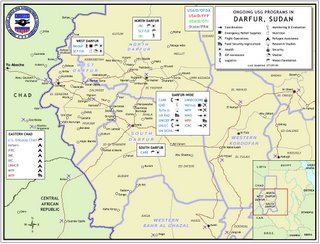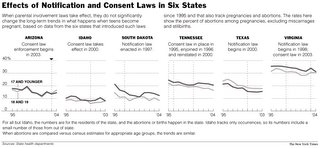From the New York Times:
March 17, 2006
Sane Chinese Put in Asylum, Doctors Find
By
JOSEPH KAHNBEIJING, March 16 — Dutch psychiatrists have determined that a prominent Chinese dissident who spent 13 years in a police-run psychiatric institution in Beijing did not have mental problems that would justify his incarceration, two human rights groups said Thursday.
The psychiatrists spent two days testing the dissident, Wang Wanxing, in Germany five months after
China released him and sent him abroad. They said in a statement that their examination "did not reveal any form of mental disorder."
The report could add fuel to charges that the Chinese police use a network of psychiatric prisons to silence political dissidents, often without trial or right of appeal.
Mr. Wang, now 56, was confined to the psychiatric center after he was detained in 1992 for unfurling a banner that criticized the Communist Party.
The authorities determined that he had "delusions of grandeur, litigation mania and conspicuously enhanced pathological will," which Western human rights groups say are diagnoses that officials have used to lock up troublesome dissidents who have not broken any laws.
After his release in 2005, Mr. Wang described widespread abuses in the mental asylum, known as the Beijing Ankang. He said he had lived in cells with psychotically disturbed inmates convicted of murder and was forced to swallow drugs to blunt his will. He also said the staff members had used electrified acupuncture needles to punish patients while other inmates were made to watch.
The two Dutch doctors, B. C. M. Raes, a professor of forensic psychiatry at the Free University
of Amsterdam, and B. B. van der Meer, also a forensic psychiatrist, examined Mr. Wang in January. Their findings were released Thursday by the Global Initiative of Psychiatry and Human Rights Watch, two human rights groups that have been critical of China's use of psychiatric prisons.
"There was no reason that Mr. Wang had to be locked up in a special forensic psychiatric hospital or to be admitted to a psychiatric facility," Dr. Raes and Dr. van der Meer said in a statement. "He was not suffering from any mental disorder that could justify his admission."
Their diagnosis contrasts sharply with one made by doctors at the Beijing Ankang, who said when Mr. Wang was released last August that he had not been cured. "His systematic delusions have shown no conspicuous improvement since he was first admitted to the hospital," the Beijing examiners said, adding that Mr. Wang should be kept under "strict guardianship" in Germany.
Human Rights Watch says it has documented 3,000 cases of psychiatric punishment of political dissidents since the early 1980's. The group contends that the use of penal mental asylums to confine dissidents has increased in recent years as the police have sought ways to punish followers of banned religious sects, political dissidents and persistent petitioners without channeling them through the court system.
Robin Munro, an expert on the Chinese psychiatric system with Human Rights Watch, said Mr. Wang's examination by the Dutch psychiatrists was the first opportunity for Western specialists to directly test a diagnosis by doctors in one of China's psychiatric prisons. He said the Chinese doctors "clearly got a failing mark."
"The Chinese diagnosis of Mr. Wang was based on disreputable theories inherited from the Soviet Union that claim that certain types of dissident thinking and behavior can be attributed to severe mental pathology," Mr. Munro said. "This is completely at variance with international standards today."
(In accordance with Title 17 U.S.C. Section 107, this material is distributed without profit to those who have expressed a prior interest in receiving the included information for research and educational purposes.)
--JB












